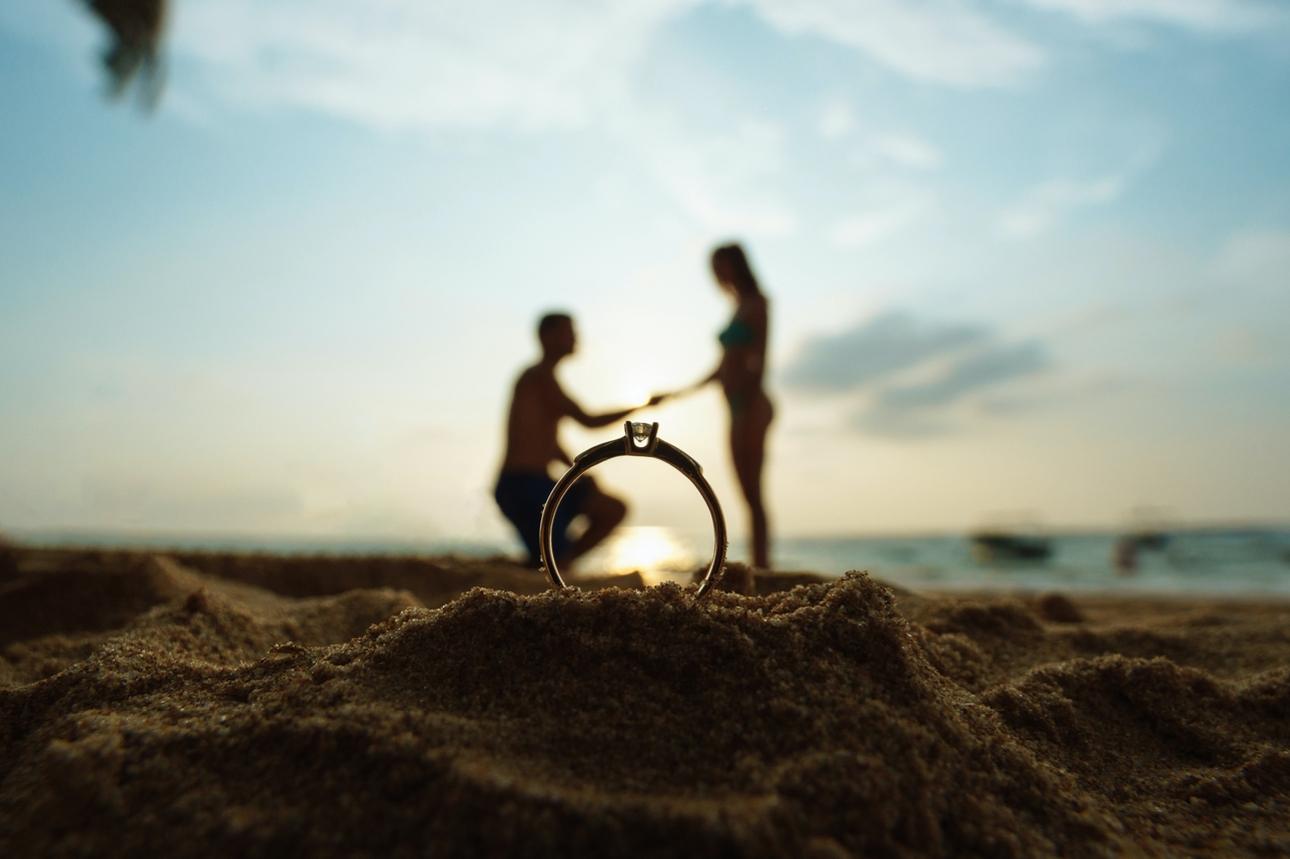Nobody’s Child launches first bridal dress collection
Nobody's Child launches its first-ever bridal dress collection this month, featuring minimal...

Are you newly engaged over Christmas and New Year and looking forward to going ring shopping together? Co-founder of ROX Diamonds & Thrills, Kyron Keogh, shares the average amount spent on an engagement ring and debunks the most common engagement ring myths. According to sales data from British luxury jeweller ROX Diamonds & Thrills, the average cost of an engagement ring is about £3,000. Kyron tells us, "On average, our customers spend an average of £3,000 on an engagement ring. When it comes to choosing a ring, there are so many different options, from the design and metal of the band to the cut, colour, clarity, and carat of the diamond."
Of course, what matters most is the beautiful union you're creating with your partner; an engagement ring should be a symbol of that, not something that breaks your budget. To avoid getting sucked into a whirlwind of complicated calculations and frustration while approaching the price of engagement rings, here are some helpful tips.
Myth: You should spend three months of your salary on the ring
Fact: There is no set rule on how much an engagement ring should cost. Knowing how much other people spend can come in handy, especially if you don't have any friends who've tied the knot just yet. The average amount spent on an engagement ring by others may be interesting, but stay grounded in your own situation and don't compare yourself to others. However, spending a little bit more on your top choice might be worth it. Instead of paying the lump sum upfront, you could consider spreading the cost of buying with interest-free credit.
Myth: Engagement rings are just for women
Fact: In a recent survey it was shown that half of all men said they would be happy to wear an engagement ring if they were proposed to by their partners.* Celebrities like Ed Sheeran, Michael Bublé and even Johnny Depp (before his very public divorce from Amber Heard) were all seen wearing engagement rings, so this trend will probably continue to be on the rise. Research by ROX on the attitude towards engagement rings highlights that nearly two-thirds (64.2%) of men believe both people in a relationship should wear engagement rings. Furthermore, over half of all men surveyed said they would be happy to wear an engagement ring if their partner proposed. Kyron tells us, "We've seen an attitudinal shift towards engagement rings in the last two years and have received more enquiries from both men and women who are searching for the perfect proposal ring for male partners. Additionally, many of us are looking for more gender-neutral styles of engagement rings that both people in relationships can wear like they do with wedding rings."
Myth: Engagement rings can be made with any stone
Fact: You should choose a stone that's durable. When you think about it, your engagement ring comes along with you for doing dishes, gardening, arts and crafts, exercising, and nearly anything else. It's unlikely you'll notice if it gets dinged, scratched, or if it's exposed to harsh chemicals, or care to keep taking it off and on. For example, stones like opal or turquoise can be scratched or even broken with ease due to their extreme softness. The MOHs hardness scale determines the density and strength of stones, and opals and turquoise sit much lower on the scale, therefore considered "soft". Interestingly, diamonds rank at 10 on the scale and are the hardest materials on earth, making them more suitable for an engagement ring.
Myth: Size matters
Fact: There are many other factors to consider other than size. Some people indeed think bigger is better when it comes to an engagement ring, but there are many factors to consider when choosing one. It helps to look for characteristics that indicate quality, such as a diamond's cut, colour, and clarity. Additionally, shoppers should consider the shape and size of their partner's fingers when choosing a ring. Kyron explains, "There are several decisions to make, including the diamond's cut and colour, the precious metal choice, and the setting style. When determining a diamond's value, always remember the 5Cs - cut, colour, clarity, carat weight, and certification."
Myth: You need to keep the same ring forever
Fact: You can always update! It's true, diamonds are forever, but your engagement ring doesn't have to be. If you love a bit of change, have a bit more to invest now, or perhaps have a special anniversary coming up, why not change your ring? Victoria Beckham, for instance, has a lavish collection of about 15 engagement rings. You don't need to spend a fortune to get there, but if you love a bit of change, most jewellers would be able to offer some sort of trade scheme. Grow Your ROX scheme allows you to trade-up your diamond for a larger one.
To shop, visit https://www.rox.co.uk/engagement-rings
*Research conducted on behalf of ROX by Savanta amongst 2,000 UK adults